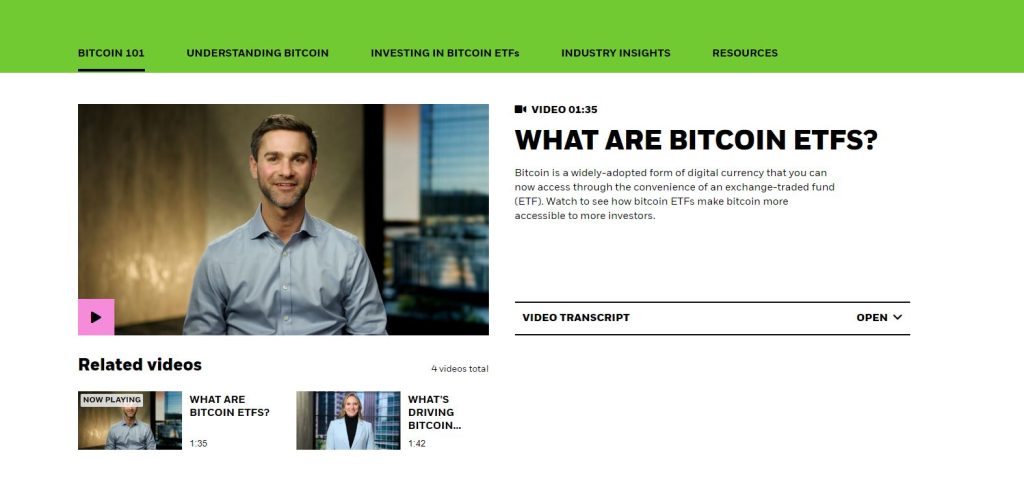April has been designated as National Financial Capability Month in the U.S., a period focused on promoting financial education nationwide, including crypto education. During this month, educational efforts not only cover traditional finance but also extend to cryptocurrencies due to their increasing popularity.
A recent Security.org study reported a 10% growth in cryptocurrency ownership in the U.S. last year, with 93 million Americans now holding one or more forms of cryptocurrencies. This surge in digital assets has underscored the need for comprehensive crypto education, as industry experts stress its growing importance.
Additionally, the anticipated Bitcoin Halving event is generating heightened interest in Bitcoin (BTC), further emphasizing the relevance of informed understanding in the evolving financial landscape.
Crypto Education Efforts In The US
Kendra Cole, Co-founder and CEO of Sparrow Finance, in an interview, emphasized the significance of the recent U.S. approval of Spot Bitcoin ETFs in elevating digital assets to mainstream status. Cole highlighted the necessity of enhancing educational opportunities about Bitcoin, particularly for women and children, citing the critical role women often play as the primary financial decision-makers within households.
According to Cole, fostering stronger community bonds through shared financial interests is crucial, and Sparrow Finance is dedicated to facilitating this with Bitcoin education. Cole also mentioned Sparrow Finance’s participation in Chicago’s Ultimate Baby Shower during Financial Capability Month, an event focused on financial education for new parents. The gathering served as a platform for discussing the involvement of women in digital assets and exploring how Bitcoin can be used to strengthen familial relationships.
Meanwhile, cryptocurrency exchange Coinbase is concentrating efforts on crypto education, as highlighted by a spokesperson in an interview. They revealed that a substantial 87% of Americans are calling for an overhaul of the financial system, driven by frustrations over excessive fees and slow transaction speeds.
To address these concerns and educate the public, Coinbase launched a new commercial this week explaining the Bitcoin halving event. The commercial is set to broadcast on major U.S. networks such as TNT, ESPN, and ABC during the NBA Playoff games, running from April 17 through April 22.
“This April the rate of new Bitcoins created will be cut in half—just like it has been every four years or so since it was created in 2009,” mentioned the spokesperson. “This halving ensures its supply remains finite overtime (similar to gold).”
Additionally, Coinbase’s marketing strategy is crafted to engage audiences effectively, integrating both digital and physical media to encourage interactive participation.
Food for thought:
What if money was designed to get you more over time, not less?#Bitcoin pic.twitter.com/z8eHF8JltQ— Coinbase 🛡️ (@coinbase) April 15, 2024
The Giant BlackRock Also Released An Educational Series About Bitcoin
Meanwhile, BlackRock, an asset management behemoth based in San Francisco with assets exceeding $10.5 trillion, has also ventured into Bitcoin and crypto education.
The firm offers a series of four concise educational videos on its official website, covering topics such as Bitcoin ETFs, the halving event, security features, and broader adoption issues.
These videos are designed to demystify complex concepts in an accessible format. Notably, one video explains that the halving event restricts the total issuance of bitcoins to 21 million, by halving the rewards received by miners every four years.

Source: ishares.com
How’s The World Approaching Crypto Education
As the importance of cryptocurrency education grows in the U.S., initiatives worldwide are also expanding to enhance understanding and adoption of blockchain technology.
Bitget, a cryptocurrency exchange, has committed up to $10 million to its Blockchain4Youth project, a part of its corporate social responsibility efforts, according to Gracy Chen, the Managing Director. Launched in May 2023, Blockchain4Youth aims to foster a blockchain-friendly educational environment and nurture young talent.
The initiative includes hosting campus roadshows globally, educating youths about blockchain. Recently, as part of the HUB FORUM 2024, Bitget held a Blockchain4Youth event at Ton Duc Thang University in Ho Chi Minh City, attracting over 1,000 students from various universities.
Chen emphasized the importance of such educational efforts, highlighting a Bitget study that suggests Millennials and Generation Z are poised to lead in crypto adoption. Further, Bitget plans to conduct educational events in the Philippines and Japan later this month.
Chen also noted that educating the public about cryptocurrencies could provide financial access to those underserved by traditional banking systems and teach them how to utilize decentralized financial services.
Meanwhile, Tether, the issuer of USDT stablecoin, has also launched an educational initiative in the Middle East. Partnering with digital asset infrastructure provider Fuze, the program aims to promote digital asset awareness among businesses and individuals throughout Turkey, the Middle East, and North Africa.
The collaboration will focus on developing programs and workshops to improve the understanding of cryptocurrency and blockchain technology among local financial institutions.
Crypto Education Still Has a Long Way To Go
The prioritization of crypto education is easy to spot, yet challenges persist, particularly due to the complexity of digital assets. Kendra Cole points out that a significant hurdle in digital asset education is bridging the knowledge and confidence gap.
This gap particularly impacts women, who often balance various responsibilities like careers, family duties, and financial management, making it difficult to find time for education on digital assets.
Cole suggests that leveraging community strength and organizing in-person events can be effective strategies to help women and families grasp the nuances of cryptocurrency.
On the other hand, Chen highlights the rapid pace of the crypto industry as a major issue for most individuals. With innovations emerging frequently—sometimes daily—it demands a high level of curiosity and initiative from learners to stay updated.
Chen also advises that those interested in learning about digital assets should not depend solely on articles or video materials from books and the internet to fully understand the industry, implying that a more comprehensive approach to learning is necessary.
- Bitcoin Falls to $65K as Mt. Gox Transfers $2.8 Billion BTC to External Wallet
- News of Marathon Digital’s $138 Million Fine for Breach of Non-Disclosure Agreement Triggers a Bearish 2.5% of Its MARA Stock
- Are $530M Bitcoin ETF Inflows a Blessing or Caution?
- Metaplanet Teams with Hoseki for Real-Time Bitcoin Holdings Verification
- 10 Best Meme Coins To Invest in 2024
- Building Secure Blockchain Systems: An Exclusive Interview with ARPA and Bella Protocol CEO Felix Xu
- Building The “De-Facto Crypto Trading Terminal”: An Exclusive Interview with Aurox CEO Giorgi Khazaradze
- Building a New Global Financial System: An Exclusive Interview With Tyler Wallace, Analytics Head at TrustToken
- “Solana is the Promised Land for Blockchain” — An Exclusive Interview with Solend Founder Rooter
- El Salvador: Where The Bitcoin Revolution Begins With A Legal Tender

 Why Trust Us
Why Trust Us






